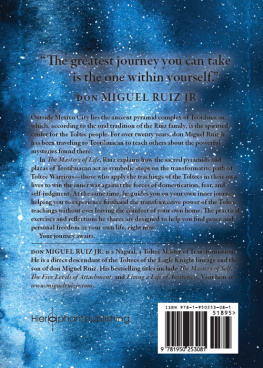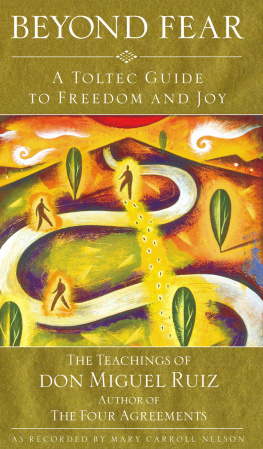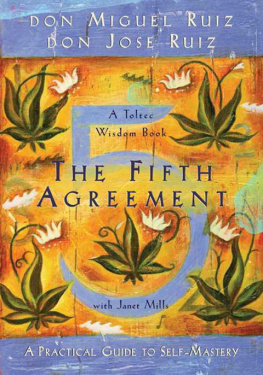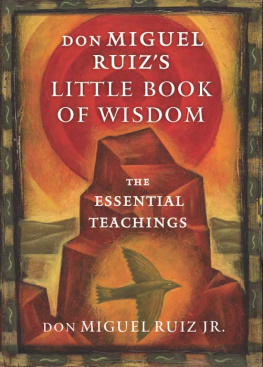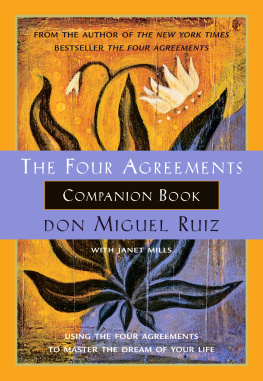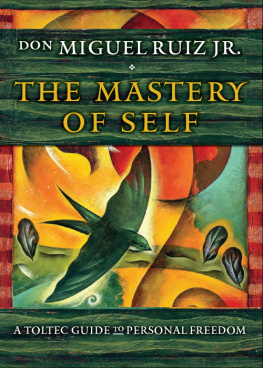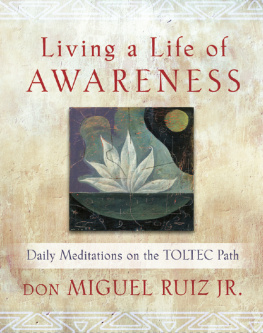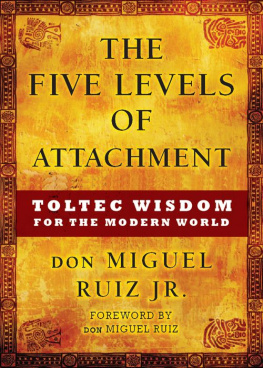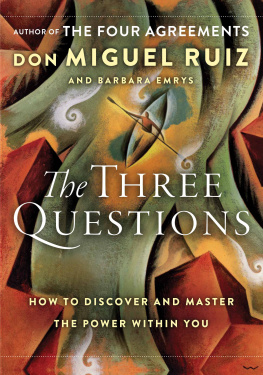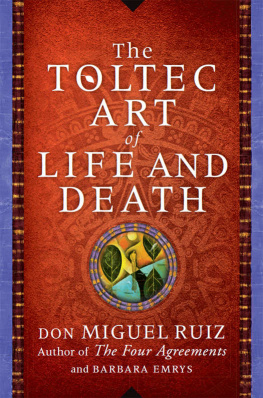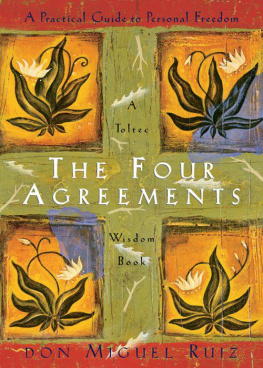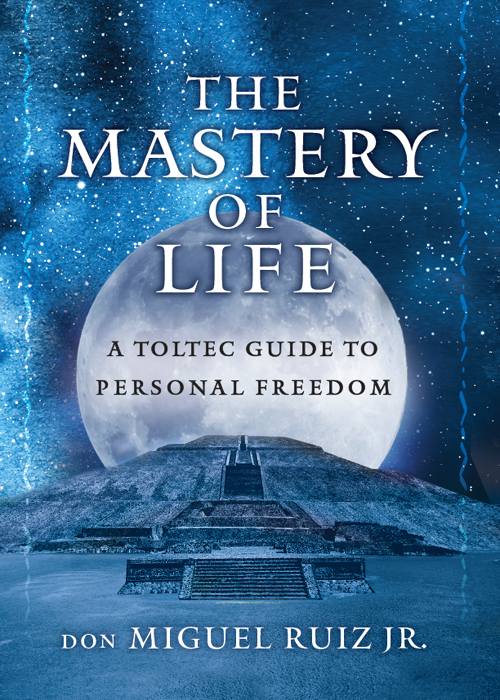


Copyright 2021 by don Miguel Ruiz Jr.
All rights reserved, including the right to reproduce
this work in any form whatsoever, without permission
in writing from the publisher, except for brief passages
in connection with a review.
Cover design by Emma Smith
Cover art by Riardas Anusauskas &
suns07butterfly || Shutterstock
Map of Teotihuacan by Frame25 Productions
Quetzalcoatl Illustration by Abdullah Al Mahmud Masum
Print book interior design by Frame25 Productions
Hierophant Publishing
San Antonio, TX
www.hierophantpublishing.com
If you are unable to order this book from your local bookseller,
you may order directly from the publisher.
Library of Congress Control Number: 2021943375
ISBN 978-1-950253-08-1
10 9 8 7 6 5 4 3 2 1
www.redwheelweiser.com
www.redwheelweiser.com/newsletter
To all whom I love.
Contents
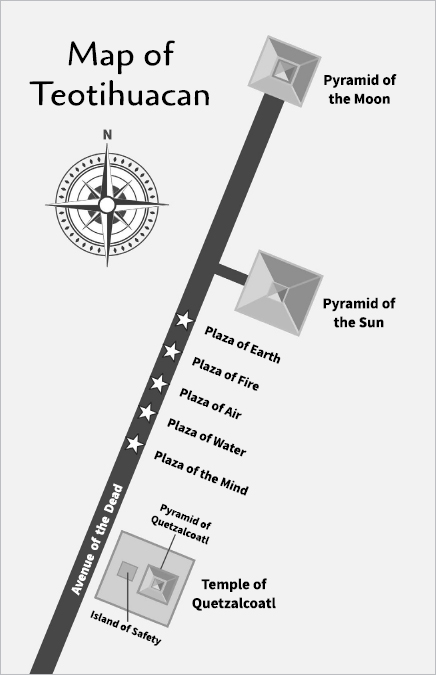
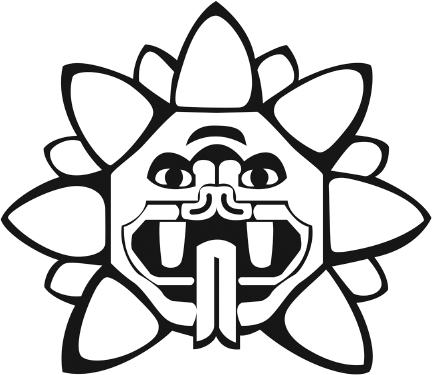
An artistic rendering of Quetzalcoatl, the legendary
feathered serpent of Mesoamerica for which the Temple
and Pyramid of Quetzalcoatl at Teotihuacan are named.
Explanation of Key Terms
Agreements: The process by which the ideas in our minds become beliefs, and consequently influence our actions.
Awareness: The practice of paying attention in the present moment to what is happening inside your body and your mind as well as in your immediate surroundings.
Domestication: The primary system of control in the Dream of the Planet. Starting when we are very young, we are presented with either a reward or a punishment for adopting the beliefs and behaviors others find acceptable. When we do this as a result of either reward or punishment, we become domesticated.
Dream of the Planet: The combination of the personal dreams of every being in the worldor the world we live in.
Mitote: The negative voices in our minds that speak to us throughout the day. Often, these voices were planted in us during our formative years, as a result of domestication.
Nagual: The Divine inside of you; the force that gives life to your mind and your body. It's similar to the concept of the spirit or the soul found in many religious traditions, but it's not exactly the same.
Personal dream: The unique reality created by every individual; your personal perspective. It is the manifestation of the relationship between your mind and your body.
Toltec people: An ancient group of Native Americans who came together in south and central Mexico to study perception. The word Toltec means artist.
Toltec Warrior: One who is committed to using the teachings of the Toltec tradition to win the inner battle against domestication and attachment.
Introduction
The Toltec Path
Words are powerful tools.
In the Toltec tradition to which I belong, we say that words are the brushes we use to paint the masterpieces of our lives. Words can shift perspectives, create clarity, and reveal opportunities; conversely, they can also be used to spread anger, fear, or hate. Thus the words we choose can either lift us up or tear us down.
Words are also the primary tools we use to communicate with one another and build almost everything in our existence. Seen in this light, it's no wonder that the opening line of the Christian Gospel of John is: In the beginning was the Word.
Our words occur first as thoughts in our minds, then as symbols with meanings that allow us to communicate and think in intellectual waysconstructing arguments, building complex stories, and, of course, making agreements. The human mind is brilliant at making agreements.
In the Toltec tradition, agreements are the result of the process by which the ideas in our minds become beliefs, and consequently influence our actions. These agreements can follow us throughout our entire lives, coloring our perceptions in every aspect of our day-to-day living. Our agreements, concerning everything from major decisions like whom we marry to seemingly trivial choices like what to wear, can work to inform, influence, and sometimes even control usoften without any conscious awareness on our part.
Most of our agreements run deep; they are created and cemented into reality by our wordy, thinking minds. We forget that thoughts and ideas, which are the building blocks of our agreements and thus our beliefs, don't exist out there in the world. They only exist inside us. And they only have power because we believe they are true. The more attached we are to a particular agreement, the more power it has over us.
Agreements themselves are neither inherently positive or negative, and we rely on many of them to navigate our way through the world successfully. The agreements we entered into as children in response to our parents' instructions on safety and good health are useful: Vegetables are nutritious and healthy. Look both ways before you cross the street. Some agreements may not be constructive or positive, however: My contributions at work aren't worth much. I'm just not a creative person. And some may even be self-destructive: I am not worthy of being loved.
Many of our agreements are the result of intellectual seeds planted inside us by others in our formative years. Learning how to recognize these agreements, discerning whether they are helpful or unhelpful, and then changing or dismissing them if necessary make up one of the major endeavors of those on a journey to personal freedom.
So while words can be very powerful, in the Toltec tradition we also recognize that words are extremely limited. They are only descriptors and indicators of reality, not reality itself. As philospher Alan Watts notes in regards to words: The menu is not the meal. Words can only point to the truth; they are not the truth in and of themselves.
Books are amazing tools which, after all, are made up of words. The right book at the right time has the power to transform lives by offering hope in times of despair or provoking wonder in times of creative drought. But for all that books are incredible pockets of potential, it is ultimately not the book itself that changes us. We change ourselves.
This presents us with an interesting challenge here. To explain the teachings and tools I will share with you here, I need to use words. But I invite you to allow these words to go beyond your mind and into your heart. It's only thenin what I call the synchronicity of heart and mindthat transformation can occur.
Beyond Mind
The ancient Greeks had a word for this. They called it metanoialiterally, beyond mind. Metanoia can be understood as a transformation of the individual that occurs simultaneously in both the mind and the heart. This is the spirit in which I would like the words of this book to be taken. I hope that they prompt you to turn inward, to move beyond logic and reason into a place of luminous openness and fresh awareness. There is a sense of movement hereof turning around, of going beyond, of opening up. And that is because, ultimately, whether we realize it or not, we are all on one long magnificent journeythe journey to personal freedom and the liberation of our true selves. The goal of this journey is a fundamental change in our perception of the world and our place in it.
Next page
